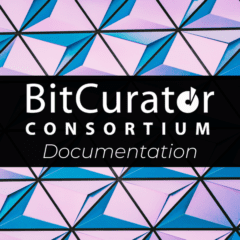
The Forensics Wiki
Simson Garfinkel
The Forensics Wiki is a Creative Commons-licensed wiki devoted to information about digital forensics.

The Forensics Wiki is a Creative Commons-licensed wiki devoted to information about digital forensics.
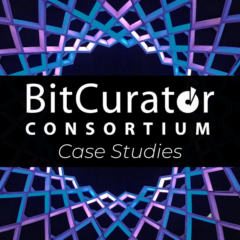
In 1988, the Iranian religious leader Ayatollah Ruhollah Khomeini proclaimed a fatwa—or death sentence—on author Salman Rushdie for his depiction of Mohammed in his fourth novel, The Satanic Verses. Rushdie subsequently went into hiding, and needed great portability in his writing devices throughout the 10-year … Read more →

How do you secure and preserve the digital historical record? How do you collect it without changing it? More than 90% of our public and private records—from the news to literary archives, and from scientific discoveries to architectural plans—originate as digital files today. Like any … Read more →

DigitalCorpora.org is a website of digital corpora for use in computer forensics education research. All of the disk images, memory dumps, and network packet captures available on this website are freely available and may be used without prior authorization or IRB approval. We also have … Read more →

Digital Forensics XML (DFXML) is the effort to create an XML schema to allow for easy interoperability between different forensic tools.

The Quickstart Guide includes detailed instructions to assist you in setting up the BitCurator virtual machine (and/or installing the environment on a dedicated host) and help you get started with common tools in the environment.

The BitCurator Consortium Bibliography is a living, curated Zotero library of publications and presentations related to digital forensics and its applications in libraries, archives, and museums.
BitCurator Consortium Charter Approved by a vote of the BitCurator Consortium membership on May 11, 2023. First established: June 9, 2014 1. Introduction 1.1. The BitCurator Consortium The BitCurator Consortium is an independent, community-led membership association. The purpose of the BitCurator Consortium is to build … Read more →
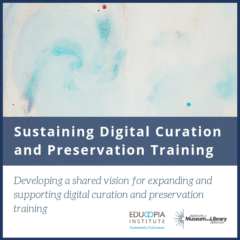
The Sustaining Digital Curation and Preservation Training project began in 2018 and ended in 2019 and was supported by a grant from the Institute of Museum and Library Services. The project engaged in multi-stakeholder scenario planning and developed a shared vision for expanding and supporting … Read more →
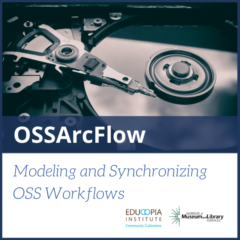
The OSSArcFlow project began in 2017 and ended in June 2020. OSSArcFlow was supported by a grant from the Institute of Museum and Library Services. OSSArcFlow project personnel worked with partner institutions to document and analyze born-digital workflows, and created an implementation guide and videos … Read more →
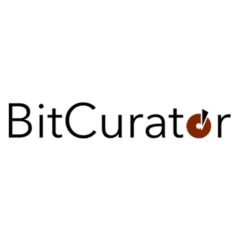
The BitCurator Access project began on October 1, 2014 and ended on September 30, 2016. Funded through a grant from the Andrew W. Mellon Foundation, the BitCurator Access team developed open-source software that support access to disk images through three approaches: Building tools to support … Read more →

The BitCurator NLP project began on October 1, 2016 and ended on December 31, 2018. BitCurator NLP was supported by a grant from The Andrew W. Mellon Foundation. BitCurator NLP project personnel developed software for collecting institutions to extract, analyze, and produce reports on features … Read more →

The BitCurator project was a joint effort led by the School of Information and Library Science at the University of North Carolina, Chapel Hill (SILS) and the Maryland Institute for Technology in the Humanities (MITH) to develop a system for collecting professionals that incorporates the … Read more →
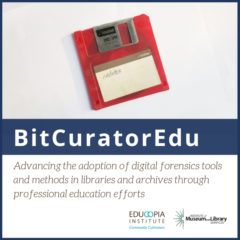
The BitCuratorEdu project was an effort (2018-2022) funded by the Institute of Museum and Library Services (IMLS) to study and advance the adoption of digital forensics tools and methods in libraries and archives through professional education efforts. This project is a partnership between Educopia Institute … Read more →
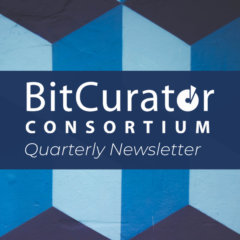
The latest issue of the BCC’s newsletter is now available! It includes: Updates from the BCC President Laura Alagna Program and registration information for the BitCurator Users Forum Official release of the new and improved BitCurator wiki Recording and notes from the July roundtable New … Read more →
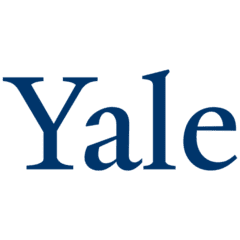
Euan Cochrane, Digital Preservation Manager Chris Bartolotta, Sourcing Manager Gabriela Redwine, Digital Archivist Susan Gibbons, University Librarian Kenneth Seals-Nutt, Software Developer Alice Prael, Digital Accessioning Archivist Rachel Chatalbash, Senior Archivist Ethan Gates, Software Preservation Analyst David Cirella